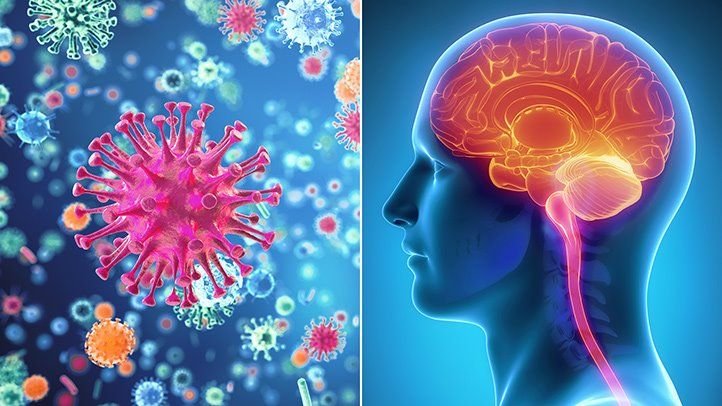Brain and ENT Clinic – Dr Lalit Mahajan In Nagpur & Dr Rachna Gangwani Mahajan In Nagpur
Meningitis encephalitis in Satna

Meningitis encephalitis in Satna is an inflammation of the meninges, which are the three protective membranes that cover the brain and spinal cord. The meninges include the dura mater, arachnoid mater, and pia mater. Meningitis can be cause by infectious agents such as bacteria, viruses, fungi, or parasites, or it can result from non-infectious causes like certain medications, cancers, or inflammatory diseases.
The most common and serious forms of meningitis are those cause by infectious agents.Preventive measures for certain types of meningitis include vaccinations. Vaccines are available to protect against some common bacteria and viruses that can cause meningitis, such as Haemophilus influenzae type b (Hib), Neisseria meningitidis, and Streptococcus pneumoniae.
Categorize into Viral and Bacterial Meningitis
Viral Meningitis:
- Viral meningitis is usually less severe than bacterial meningitis. It is often cause by common viruses such as enteroviruses (e.g., coxsackievirus, echovirus) or herpesviruses.
- Symptoms may include fever, headache, stiff neck, sensitivity to light, and alter mental status.
- Viral meningitis is generally more common, and most cases tend to resolve on their own with supportive care.
Bacterial Meningitis:
- Bacterial meningitis is a more severe and potentially life-threatening form of the disease. It requires prompt medical attention and treatment with antibiotics.
- Common bacteria causing bacterial meningitis include Streptococcus pneumoniae, Neisseria meningitidis (meningococcus), and Haemophilus influenzae.
- Symptoms are similar to viral meningitis but can progress rapidly, leading to serious complications.
Symptoms of Meningitis
- Sudden onset of fever
- Severe headache
- Stiff neck (neck pain and difficulty moving the neck forward)
- Nausea and vomiting
- Sensitivity to light (photophobia)
- Alter mental status or confusion
- Skin rash (in some cases, particularly with meningococcal meningitis)
Treatment of Meningitis Encephalitis
Bacterial Meningitis:
Antibiotics: Bacterial meningitis is typically treat with intravenous antibiotics. The choice of antibiotics depends on the specific bacteria causing the infection. Commonly use antibiotics include ceftriaxone or cefotaxime, along with vancomycin. In some cases, additional medications may be need.
Hospitalization: Bacterial meningitis often requires hospitalization for close monitoring and administration of intravenous antibiotics. Supportive care, such as fluids and pain management, is also provide.
Corticosteroids: In some cases, corticosteroids like dexamethasone may be use to reduce inflammation and the risk of complications. This is often administere before or with the first dose of antibiotics.
Isolation: Patients with bacterial meningitis are usually place in isolation until the infection is no longer contagious.
Viral Meningitis:
Supportive Care: Viral meningitis is often less severe than bacterial meningitis. Treatment involves supportive care, such as rest, hydration, and pain management.
Antiviral Medications: If the viral cause is herpes simplex virus (HSV) or another specific virus, antiviral medications may be prescribe.
Fungal Meningitis:
Antifungal Medications: Fungal meningitis is less common but may occur in individuals with compromise immune systems. Antifungal medications, such as amphotericin B, may be use.
Supportive Care: Supportive care, including hydration and pain management, is also provide.
